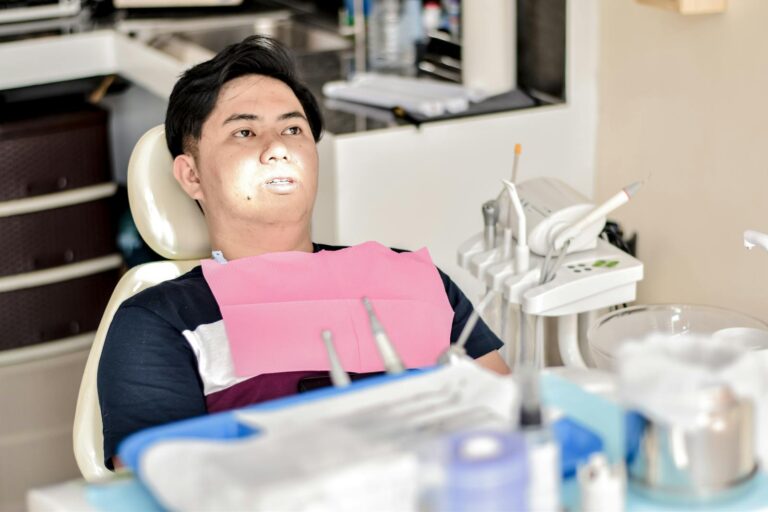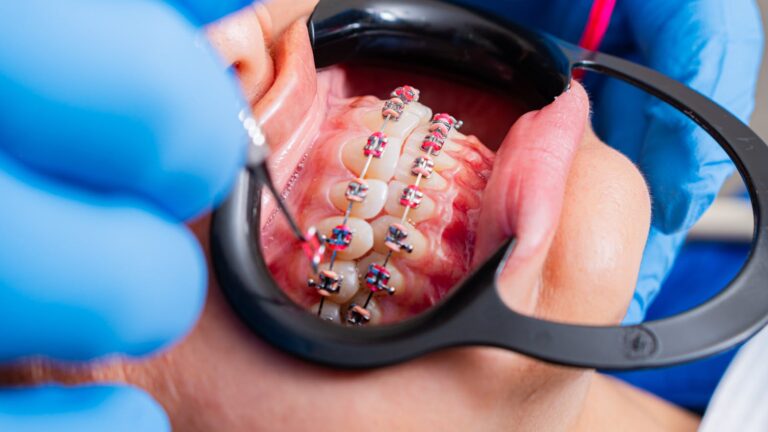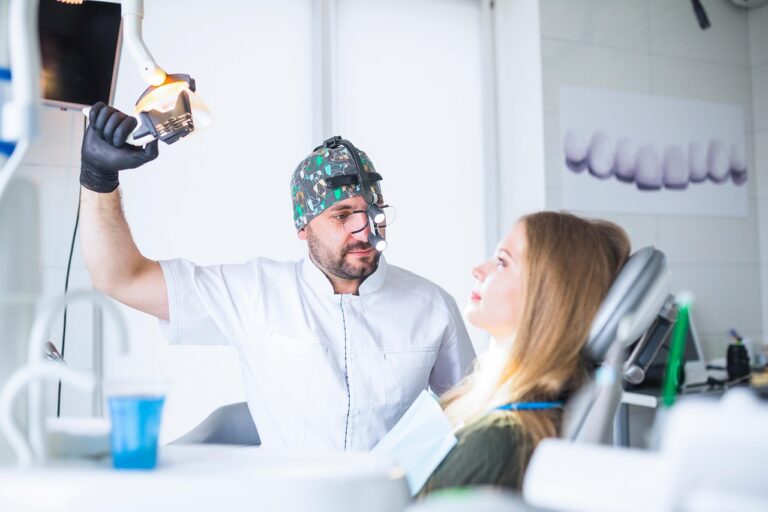What Happens If Impacted Wisdom Teeth Are Not Removed?
Impacted wisdom teeth are kind of like ticking time bombs in your mouth. You might not see them, you might not even feel them—but if they’re left alone for too long, they can cause some serious damage. So, what actually happens if you don’t remove impacted wisdom teeth?
Let’s walk through the consequences, one by one—because ignoring them doesn’t make them harmless. It just makes them silent troublemakers.
Chronic Pain and Pressure
Impacted wisdom teeth often start out silently—but they rarely stay silent forever. One of the earliest and most common signs that something’s wrong is a persistent ache or pressure in the back of your mouth or jaw. At first, it might feel like mild discomfort that comes and goes, especially when chewing or yawning. But over time, that dull pressure can intensify into sharp or throbbing pain that disrupts your ability to eat, speak, or sleep comfortably.
The cause? Impacted wisdom teeth are often trapped under the gums or growing at an angle, and they can press against nearby structures—including bone, neighboring teeth, or even the nerve pathways that run along your jaw. This pressure can trigger radiating pain, sometimes even extending toward the ear, temple, or throat. Left untreated, it can become a chronic issue that flares up frequently and significantly affects your quality of life.
What’s worse: this type of pain typically doesn’t resolve on its own. Unlike a sore muscle that might get better with rest, an impacted wisdom tooth only continues to worsen with time.
Damage to Neighboring Teeth
One of the more serious and less obvious consequences of impacted wisdom teeth is the harm they can cause to adjacent teeth—most often, the second molars. These are the large, strong teeth responsible for grinding food, and they’re essential for maintaining a healthy bite.
As wisdom teeth attempt to erupt in a cramped space, they may push forcefully against the second molars, resulting in several long-term problems:
- Tooth shifting or crowding, especially in the back of the mouth
- Erosion of the root surface of the second molars, which weakens the tooth
- Damage to the enamel, making the tooth more vulnerable to decay
- Creation of tight, hard-to-clean spaces, increasing the risk of interproximal cavities
In more advanced cases, the pressure from an impacted wisdom tooth can even lead to the loss of a healthy second molar. Imagine having to extract a perfectly good tooth—not because it was decayed, but because it became the unintended victim of a wisdom tooth growing in the wrong direction.
Gum Infections (Pericoronitis)
When a wisdom tooth only partially erupts through the gum—meaning part of it is visible while the rest remains covered—it creates a small flap of soft tissue that traps bacteria, food particles, and plaque. This condition is called pericoronitis, and it’s one of the most common reasons young adults end up in the dental chair with urgent pain and swelling.
Pericoronitis can cause:
- Red, inflamed, and swollen gums at the back of the mouth
- Persistent bad breath or a foul taste, even after brushing
- Difficulty opening the mouth fully (a condition called trismus)
- Pain that radiates to nearby areas like the ear, throat, or neck
In its early stages, pericoronitis can be treated with antibiotics and professional cleaning. But if it’s left untreated, the infection can spread to surrounding tissues, sometimes even leading to serious facial swelling or abscess formation. In rare but dangerous cases, the infection can progress beyond the oral cavity, turning into a medical emergency that may require hospitalization.
Cyst Formation and Bone Loss
When impacted wisdom teeth are left untreated, one of the more alarming complications is the development of a dental cyst—a fluid-filled sac that forms around the crown of an unerupted tooth. These cysts often begin without symptoms, making them particularly dangerous because they can grow silently over time without causing immediate pain.
As the cyst expands, it starts to erode the surrounding jawbone, weakening the structural integrity of the area. This bone loss isn’t just localized—it can spread and affect multiple regions, creating hollow spaces in the jaw that are prone to fractures or infections.
The pressure from the growing cyst can also displace adjacent teeth, push them out of alignment, or resorb the roots of neighboring molars—leading to irreversible damage and tooth loss. In particularly advanced cases, the cyst may transform into a more aggressive benign tumor, such as an ameloblastoma, which requires extensive surgical removal and sometimes bone reconstruction.
The real danger is that many people don’t know a cyst is there until it’s detected on a routine panoramic X-ray—or worse, until it causes visible swelling or facial asymmetry. By then, what could’ve been a simple wisdom tooth removal might require jaw surgery, bone grafting, or even hospitalization.
Crowding and Orthodontic Relapse
For those who’ve invested time and money into orthodontic treatment—whether it’s traditional braces or clear aligners—there’s always a lingering question:
“Will my wisdom teeth ruin the results?”
The short answer? Possibly—but not always in the way people expect.
While some research suggests that wisdom teeth don’t generate enough forward pressure to cause significant dental crowding, especially in the lower front teeth, many orthodontists and dentists have observed that in tight arches, the eruption of wisdom teeth can contribute to minor tooth shifting over time.
This becomes even more noticeable if patients stop wearing their retainers after braces. Even subtle changes in pressure can nudge the teeth inward, especially in the lower anterior region, which is naturally more prone to relapse.
So while wisdom teeth may not be the sole villain, they often play a supporting role in post-orthodontic relapse—and if you’re not careful, your once-straight smile could start to look crowded again.
That’s why most orthodontists recommend regular follow-ups, panoramic X-rays during late adolescence or early adulthood, and extraction of problematic wisdom teeth before they erupt and interfere with your alignment.
Sinus Problems (for Upper Wisdom Teeth)
It might come as a surprise, but your sinuses and your teeth are more connected than you think—especially in the upper jaw. The roots of upper wisdom teeth often lie very close to the maxillary sinus cavity, which is the air-filled space just above your molars and premolars.
When an upper wisdom tooth becomes impacted or begins to grow upward at an angle, it can press against the thin bone that separates it from the sinus cavity. This pressure can lead to:
- Sinus congestion or pressure, especially when lying down
- Headaches or facial pain that mimics sinus infections
- A feeling of fullness or heaviness in the cheeks
- In some cases, sinus infections caused by bacteria migrating from the inflamed gum tissue
In rare situations, an impacted tooth can even perforate the sinus floor, creating a communication between the mouth and sinus—a condition called an oroantral fistula, which requires surgical repair.
Though sinus-related complications from wisdom teeth aren’t as common as other issues, they are very real and highly uncomfortable for those who experience them.
Why Waiting Isn’t Worth It
The thing about impacted wisdom teeth is that **they rarely get better on their own**. You might have periods of calm, but the problems tend to flare up again—and each time, they can get worse. What could’ve been a simple preventive procedure in your early twenties might become a complex surgical extraction in your thirties or forties.
And here’s the kicker: if your dentist or oral surgeon recommends removal, it’s not to upsell you—it’s because they’ve seen what happens when people wait too long.
Final Thoughts
If you’ve been told you have impacted wisdom teeth, don’t let fear, time, or uncertainty push the decision off indefinitely. Not all wisdom teeth need to be removed, but **those that are impacted and problematic almost always do**.
Trust your dentist, listen to your body, and know that removing impacted wisdom teeth early is often the best way to protect your long-term oral health—and avoid some pretty painful consequences down the line.






